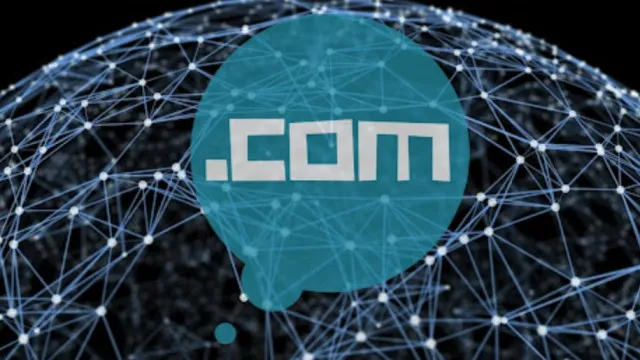If you’ve ever browsed the internet, you’ve likely noticed the ubiquitous “.com” at the end of countless web addresses. But what does it really mean? This article delves into the history and significance of the “.com” domain, exploring its origins and its role in shaping the online landscape we know today.
The Origins of “.com”: A Brief History

The “.com” domain made its debut on January 1, 1985, as part of the initial batch of internet domains established to organize the growing online world. Designed primarily for commercial use, it was intended for businesses wanting to carve out their space on the internet. The term “.com” is short for “commercial,” reflecting its original purpose.
In those early days, alongside domains like “.edu” for educational institutions and “.gov” for government sites, “.com” became the go-to for companies seeking to connect with customers online. It quickly gained popularity and established itself as the most recognized domain extension, embraced by millions of websites globally.
From Business to Personal Use: The Evolution of “.com”
Initially, the “.com” domain was strictly for businesses. However, as the internet flourished, individuals and organizations began utilizing it for personal websites, blogs, and other non-commercial projects. This evolution broadened the scope of what “.com” represented, transitioning from a purely commercial identifier to a more inclusive domain extension.
Today, anyone can register a “.com” domain, regardless of whether the purpose is business-related or personal. This shift has helped solidify “.com” as the default choice for many internet users.
Comparing Domain Extensions: What Sets “.com” Apart?
You might wonder how “.com” stacks up against other domain extensions. For instance, “.edu” is exclusive to educational institutions, ensuring users know they’re visiting a site related to academia. Similarly, “.org” is commonly associated with non-profit organizations, indicating a mission-driven purpose rather than a profit-centric one.
In recent years, new domain extensions like “.io” have gained traction, especially among tech startups and gaming companies. Unlike “.com,” which has a clear origin and intent, “.io” does not carry a defined meaning, often chosen for its trendy appeal rather than its functional purpose.
Despite the emergence of these new extensions, “.com” remains the most recognized and widely used domain. It continues to be a preferred choice for businesses and individuals alike, often associated with trust and professionalism.
The Cultural Impact of “.com”

The popularity of “.com” has sparked discussions about its significance in the online world. Many internet users believe that having “.com” in a website’s address denotes credibility. For example, a site ending in “.com” typically signals that it is run by a business, helping visitors gauge what to expect.
Interestingly, the history of “.com” mirrors the overall development of the internet. When the internet first emerged, there were only a handful of domain extensions available. As more users and businesses flocked online, the demand for new domains surged, leading to the diverse array of extensions we see today. Yet, “.com” remains the gold standard in the digital realm.
The Future of “.com”: Continuing Relevance in a Changing Landscape

As the internet landscape evolves, “.com” shows no signs of losing its prominence. While new domain extensions are continually introduced, the familiarity and reliability associated with “.com” keep it at the forefront. Businesses still view it as the ideal extension for establishing an online presence, while individuals often choose it for personal projects.
Moreover, the vast majority of users instinctively type “.com” when searching for a website, further cementing its importance in everyday internet use. This instinct showcases how deeply ingrained “.com” has become in our online culture.
The Enduring Legacy of “.com”

In conclusion, the “.com” domain is more than just a web address; it represents the evolution of the internet itself. From its origins as a commercial identifier to its current status as the go-to choice for individuals and businesses alike, “.com” has shaped how we navigate the online world.


